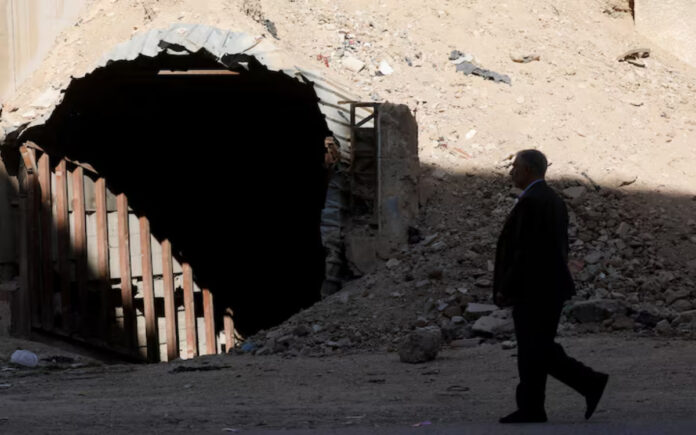Geneva: The United Nations refugee agency (UNHCR) has projected that approximately one million Syrian refugees could return to their homeland during the first half of 2025. The agency, however, emphasized that host countries must refrain from forcing refugees to return.
The forecast comes in the wake of a surprising rebel offensive that ousted Syria’s President Bashar al-Assad this month, marking a dramatic turn in the nation’s 13-year-long civil war. The rapid change in power has raised the possibility that millions of displaced Syrians might consider returning.
“We have forecasted that we hope to see somewhere in the order of 1 million Syrians returning between January and June next year, so we shared this plan with donors, asking for their support,” said Rema Jamous Imseis, UNHCR Director for the Middle East and North Africa.
Surrounded by rubble in Syria's al-Yarmouk camp, Palestinian refugees are eager to rebuild their homes after rebels ousted Bashar al-Assad, ending a 13-year civil war that devastated Damascus and displaced thousands https://t.co/qcrG90omCP pic.twitter.com/eMtaP7jUFv
— Reuters (@Reuters) December 17, 2024
Despite the shift in leadership, Imseis cautioned that the humanitarian crisis remains severe. “We have massive humanitarian needs on a scale that hasn’t in any way diminished,” she explained, noting that an additional one million people have been internally displaced since the rebel advance began.
In the immediate aftermath of the rebels’ rise to power, thousands fled Syria, while many also returned, primarily from neighboring countries such as Turkey, Lebanon, and Jordan, according to Imseis.
She acknowledged that those fleeing may include individuals associated with the former government or religious minorities concerned about their safety under the new administration, now led by Hayat Tahrir al-Sham (HTS), a group with historical ties to al-Qaeda.
Also Read | Warren Warns of Musk’s Conflicts of Interest in Trump Administration
Countries hosting Syrian refugees should exercise patience as individuals assess whether it is safe to return, Imseis stressed. “It’s important to maintain that protection for Syrians who have already found refuge in host countries and ensure they are not forcibly returned to Syria,” she said.
Also Read | European Carmakers Slash EV Prices, Hike Petrol Costs Ahead of New Emissions Rules
Addressing concerns about some nations freezing asylum applications for Syrians, Imseis reiterated the UNHCR’s stance: “We have been very clear in the non-return advisory to all countries. It is just far too soon to make this determination on the safety and stability of Syria, and there are many questions that need to be answered.”



